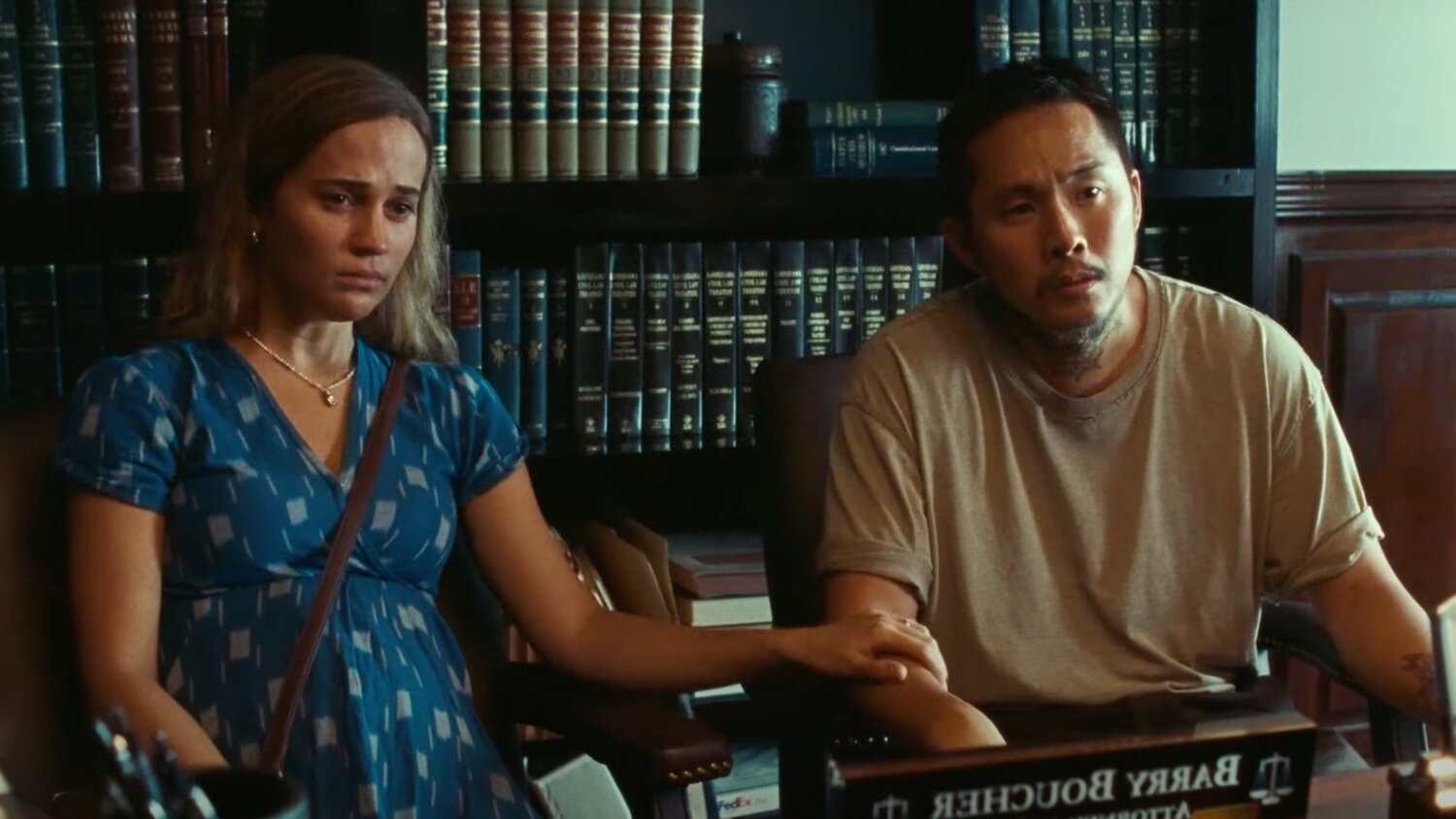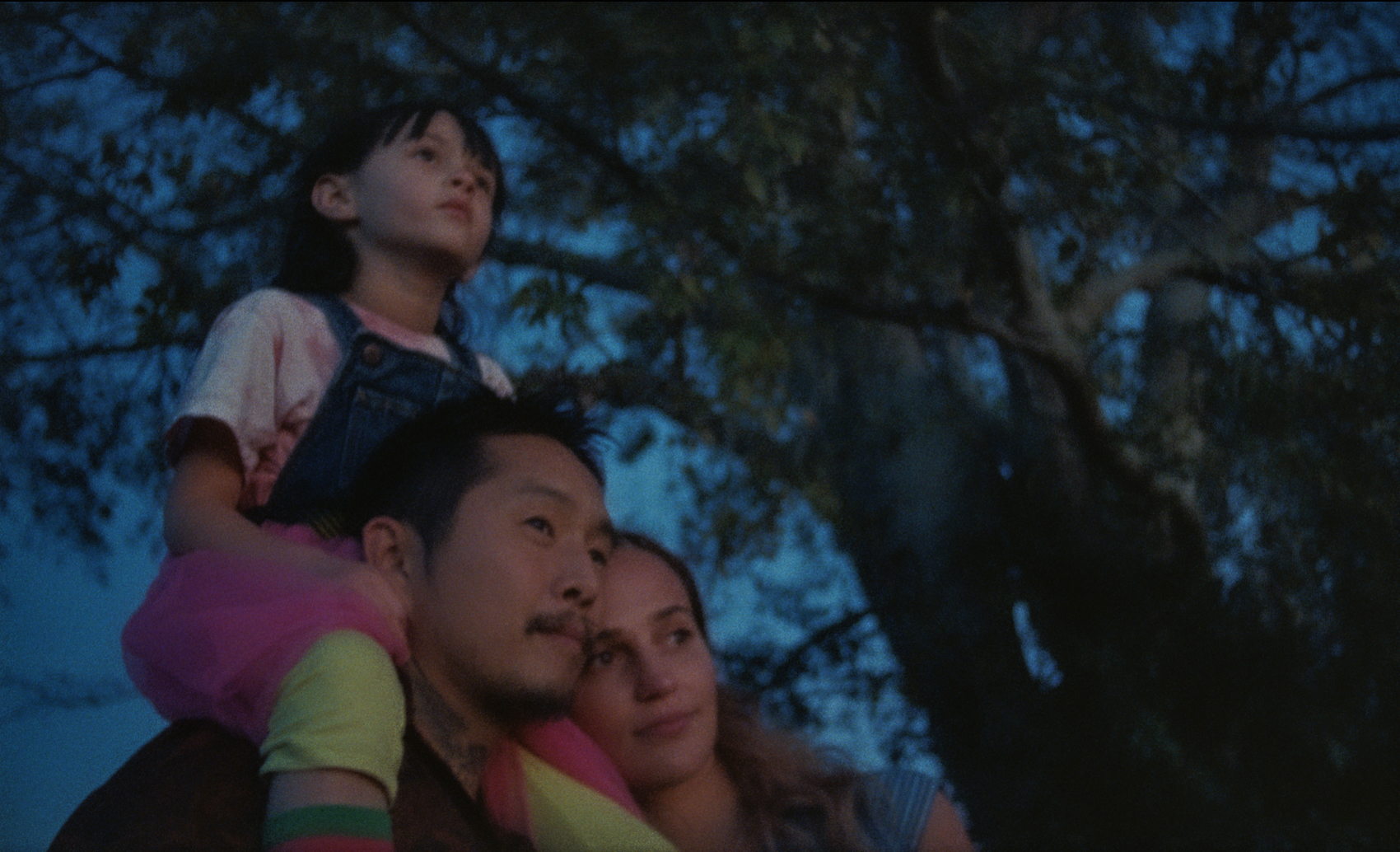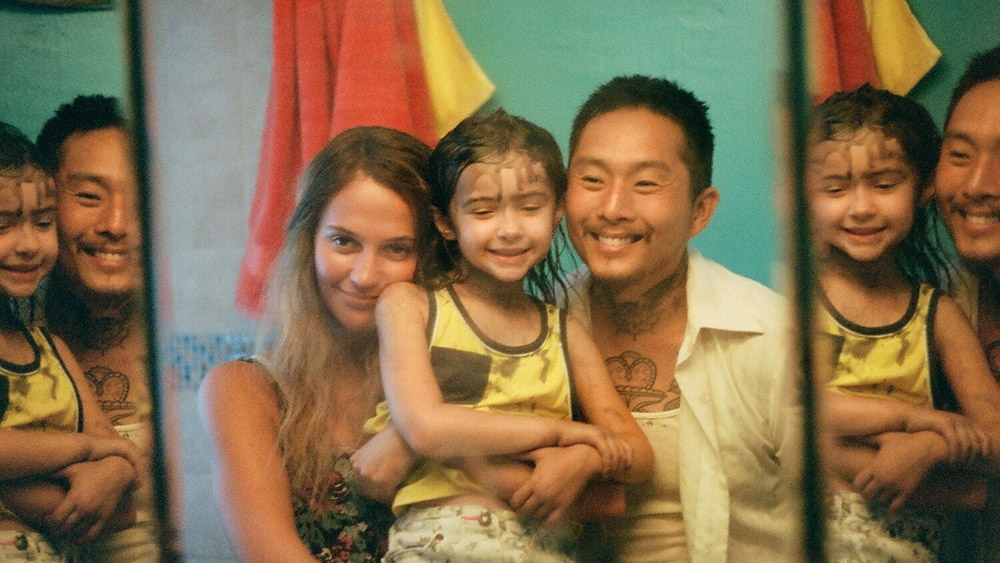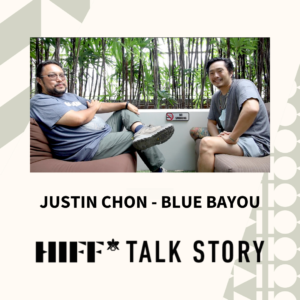This review contains spoilers to Justin Chon’s BLUE BAYOU –
A work of art (film in this instance) can be broken up into two intersecting concepts: form and content. While content is the subject of the artwork, form deals with the different ways the artist utilizes their respective tools (camera work, costumes and set designs, or editing for example) to create the meaning of the art. When both form and content get the attention they deserve, and work together in an effective and impactful manner, great art can be produced; we can think of classics like MOONLIGHT (Barry Jenkins, 2016) or GOODFELLAS, (Martin Scorsese, 1990) as examples. When neither concept is working, the art could be rejected or even worse, forgotten. But when one concept is working more than the other, no matter if it be form or content, the art ultimately produced is disappointing. Unfortunately this is the case for Justin Chon’s BLUE BAYOU, a beautiful film that seems to have been focusing too much on form, that it left behind the impact of its content.
Justin Chon writes, directs and stars in BLUE BAYOU, which premiered in July at the 74th Annual Cannes Film Festival. The film tells the story of a 30-something Korean immigrant named Antonio LeBlanc (played by Chon). He came to America as a baby and was placed in foster care. The film begins with Antonio happily married to Kathy (played by Academy Award Winner Alicia Vikander), while being a supportive step-father to Kathy’s daughter, Jessie (played by Sydney Kowalske). Antonio is expecting a baby, and is in love with his new life, though he struggles financially, constantly looking and hustling for work, while facing several racist remarks and micro-aggressions in the process.

Though the crux of the story occurs when Antonio, Kathy, and Jessie run into Jessie’s once absent father, police officer Ace (played by Mark O’Brien). Ace is determined to have a relationship with his daughter, one that Kathy refuses due to his past actions. Things escalate and eventually lead to Antonio getting detained by the U.S. Immigrations and Customs. Due to an exploited loophole in the law that only protects adoptees born after the year 2000, Antonio is facing deportation. Now the story takes off with Antonio and Kathy desperately trying to figure out a way on how to keep Antonio in Louisiana, while learning how relentless the immigration and deportation process can really be.
Justin Chon is incredibly talented. As an actor, younger folks may recognize as Eric Yorkie from the TWILIGHT films or as a collaborator with YouTube star Ryan Higa. His role as Antonio LeBlanc here is spectacular. The acting could’ve been met with disregard in the wrong hands; afterall, pulling off a Louisiana accent is quite a risk. But Chon pulls it off seamlessly, while balancing the complicated emotions and inner turmoil of Antonio extremely well. The scene of his argument with Alicia Vikander in their kitchen, which is done all in one take, is a stand-out, both actors pulling off a raw and authentic performance.
As a director, he may be even more talented. This was the first film I watched from Chon and was immediately impressed by his direction. The first shot of the film is of a woman on a riverboat, surrounded by pink flowers. It’s a stunning and beautiful image that instantly brings you right into the world of the film. Chon is actively making choices, deciding to do long-takes or slowing down certain sequences as examples, to make moments stand out. And unlike many other filmmakers today, Chon isn’t afraid to use color, using different hues of blue, red, and orange in several different scenes to set the mood and convey a deeper meaning and emotion to what we’re watching. Certain shots seem inspired by director Tsai Ming-Liang, or Chirstopher Doyle’s work with Wong Kar-Wai especially. It’s impressive and impactful. Chon’s work with cinematographer Matthew Chuang, and especially Ante Cheng (who was cinematographer for Chon’s two prior features) is the true standout of the film. And with that being said, is the reason why the film ultimately becomes disappointing. The form here is masterful, but the content is lacking.
HIFF TALK STORY w/ JUSTIN CHON
WATCH HIFF’S ANDERSON LE DISCUSS BLUE BAYOU WITH THE ACTOR/DIRECTOR
For the most part, this drama has a pretty simple story at its core, and it being about deportation is especially powerful. This seems like a recipe for great content, though unfortunately, the film takes too many turns down unnecessary cul-de-sacs for it to reach its full potential. This happens to be my biggest complaint of the film, the decision to center its time more on the melodrama of the story.
Certain plot points seem to be driven by melodrama as well, particularly the one of Antonio’s new friendship with Vietnamese immigrant and cancer-patient Parker. While Parker seems to serve the story as the bridge between Asia and America, her story itself took away from the main plot. The choice to make Parker a cancer victim, specifically, seemed to veer off course from the main message of the film. Where her story ultimately goes, considering how much time we spend with her in the film, it just seemed like unnecessary emotional manipulation.
Perhaps each melodrama is a result from the main drama presented, but I’d argue that the presentation of the melodrama is why it took me, personally, out of the film. There’s definitely a need to flesh out the character of Antonio more, but the way it’s done can be so relentless and artificial at times that it starts to feel hollow. This especially rings true when the film starts to present a new “everything falls apart” moment every 10 minutes. Antonio is constantly beaten down, both figuratively and literally, that when the little victories finally come they almost seem rather meaningless. So many bad things start happening to Antonio, that you start wondering how much time is left so he and his family can finally be done with this misery. But then again, perhaps that’s the point and it’s just not working for me.

With all of that being said, the last scene is near-perfect. That scene was when “form and content” finally met and worked together to produce something heartbreaking, hopeful, and ultimately impactful. It’s been weeks since I’ve seen the film and the last five minutes have been on repeat in my head. It’s that well-done.
As reported by the closing titles, tens of thousands of adoptees have been deported from the United States due to an exploited loophole in a law that only protects foreign-born adoptees born in the year 2000 or after. Before the credits roll for the film, pictures of actual people who have been affected by this law are shown, along with short captions telling their story. It’s ridden on an emotional high after that gut-punch of a last scene, most likely to emphasize the very real problem immigrants still face today. When reading the captions I couldn’t help to think, this story could’ve worked way better as a documentary.
I’m rooting for Chon’s career, and have become a fan since watching his two other features MS. PURPLE and GOOK, both great films. I really appreciate his refusal to put Asian people in a box; we are capable of being any sort of character, not just one stereotype. He has a helluva lot of talent as a filmmaker, the fact that he used 16mm celluloid film for this film is enough for me to give him respect for keeping film alive and well. He has quite the eye on how and what makes an image beautiful. I am looking forward to his next project, which is currently shooting in Hawaiʻi with rapper Rich Brian. The plot is currently being kept under wraps.
Connor Torres served as the Education Coordinator Intern at the Hawaiʻi International Film Festival this past summer. He appreciates every and any aspect of film/filmmaking, though is particularly interested in critiques and analysis of film.




